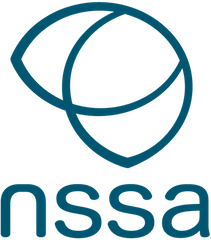Accreditation is here and now
For those of you who have been at recent NSSA meetings, you would have heard the term ‘accreditation’ thrown around. I thought that I would give you a bit of information about what this means for you and where we are at as a society.
There are two types of accreditation - lab accreditation, which in a Victorian public setting is currently run through your hospital & scientist accreditation, where you are given the tick of approval to say that you are competent enough to complete your job at a standardised level.
The NSSA over the last few years, but in particular over the last few months, have been working on the idea of scientist accreditation. I know that there may be mixed feelings about accreditation in general, so I thought that I should outline some benefits of being an accredited scientist from the NSSA’s perspective.
The main purpose of these standards is to define the minimum skill level and areas of competence the public has a right to expect of a Clinical Physiologist. However, there are some other benefits:
1) By Neurophysiology Scientists registering with an accreditation board we are holding individuals to a certain work place standard
2) Not all people working in the Neurophysiology field are meeting basic scopes of practice or professional standards. Accreditation will, therefore, hold individuals accountable, resulting in these standards being upheld across the country.
3) Accreditation will help to encourage scientists to upskill in their profession each year, with an auditing process in place.
4) Registering as a Neurophysiology Scientist will assist you in applying for a new job as the hiring committee knows that you are able to meet national standards.
Up until a few weeks ago, the NSSA board thought that we would have to undertake the bulk of the accreditation process ourselves. For those of you who have been around long enough, you may remember that we have had conversations with the Australian Council for Clinical Physiologists (ACCP). At the time, there was a lot of confusion about how the NSSA fit into the ACCP framework and the other Neurophysiology body, ANSA.
Recently, I met with ACCPs President, Kelli, to discuss what the ACCP offers us both as a society and as individual scientists. I learnt so much from our conversation and I think that it is important that I share the information with you.
The ACCP’s main role is to provide a framework to ensure that Clinical Physiologists across Australia are providing high quality healthcare within their scope of practice. It was formed over nearly a 15 year period using already established frameworks from international associations. They are a small association (currently 350 registered members), with their board consisting of clinical physiologists volunteering their time, much like the NSSA. There are four categories of physiologists that can register through the ACCP; cardiology, neurophysiology, sleep and respiratory. In order to register and become accredited through the ACCP, there are a number of forms that need to be completed and proof of qualifications needs to be provided. Part of the ACCPs registration requirements is that you need to meet the criteria to be a ANSA member. This is essentially the same criteria as the NSSA requirements (Bachelor in some type of science, 12 months of clinical experience). However, you do not need to be a current member of ANSA or NSSA to become an accredited scientist with the ACCP.
Now I hear you all thinking, what is the point of being a NSSA member is if I don’t need it to be an accredited scientist? The answer is education.
In order for you to maintain your accreditation with the ACCP, you are required to accumulate 20 points of continuing professional development (CPD) annually. There are a number of different activities that you can choose to complete throughout the year including attending external seminars and lectures. To make it easy, we have broken down the potential CPD points in reference to the NSSA:
Attending a NSSA meeting = external seminars/ workshops/ lectures = 2 points
Presenting at a NSSA meeting = presentation at meeting/ conference/ course/ seminar = 3 points
Preparing poster for NSSA poster competition = project work (could potentially also classify as ‘clinical audit’ depending on content of poster) = 1 point
Presenting poster at NSSA poster competition = presentation at meeting/ conference/ course/ seminar = 3 points
Writing a blog post for NSSA website = 3 points.
You need to keep documentation and sometimes proof of attendance in order to claim your CPD points. From now on, every NSSA member will receive a certificate of attendance when they attend a NSSA meeting. The NSSA board are further looking into educational modules and workshops which will help you achieve your 20 CPD points.
It is up to each individual scientist to document their CPDs each year in case they are requested by the ACCP for audit. You will also need to state that you have completed 20 points of CPD when you re-register each year.
The link for the ACCP Framework/CPD point outlines can be found here.
The CPD Portfolio template can be found here.
Overall, the NSSA strongly encourage all of our members to register with the ACCP. We will be here to support you and to continue to provide education to make us all better Neurophysiology Scientists. Please let us know if there are any other questions that you have!
Georgia Grant
NSSA President

